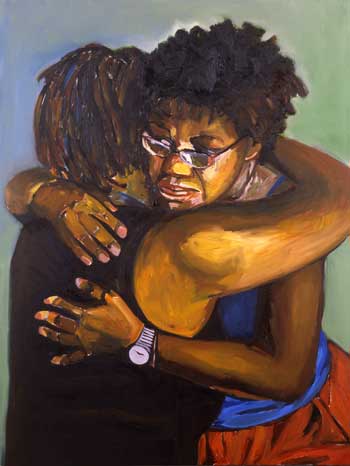There is a lot to recommend about the HBO original film Cinema Verite, and I’m not just saying that because I make documentaries! This film, which runs at a brisk pace and comes in at under 1:30, is entertaining and a little provocative while making full use of an excellent cast.
Key among the cast are Diane Lane as Pat Loud, Tim Robbins as her husband Bill, and James Gandolfini as the producer who sells them on opening up their lives for a PBS crew to make a documentary about the American family in the early 1970s.
What came of that extended shoot, a 12-part series called An American Family has divided critics ever since, much as it divided critics and viewers when it aired in 1973 (disclaimer here that I’ve never seen the series, which has not been available on DVD).
Many people have linked An American Family to the reality TV genre – and this HBO film engages in a bit of connecting those dots – but I’m not sold on this because there are as many differences between the forms as there are shared conventions. But, that’s a topic for another day.
Cinema Verite interests me on three levels: it is engaging on its own merits, the issues addressed about documentary ethics are compelling to me, and the filmmaking team also made American Splendor.
Shari Springer Berman and Robert Pulcini popped on my radar in 2003 when I saw American Splendor in theatrical release. I don’t use the b-word often, but this film is brilliant.
Timing is a funny thing. Coincidentally, I showed American Splendor in class last week and had occasion to watch it again a couple of times in preparation, including one viewing with the commentary track (which can be an exercise in tedium or quite illuminating, and this time it was generally illuminating).
American Splendor is a bold tale about an everyman, Harvey Pekar, who becomes a comic hero.
Because different artists have drawn Harvey differently in the books he has written about his daily life and job as a file clerk at a Cleveland, Ohio VA Hospital, the different representations that the filmmakers have chosen to give him in the film work while also speaking to the postmodern fragmentation of identity that scholars and critics have addressed over the last couple of decades.
I know that sounded a little academic (if not pedantic), but it’s true. What’s also true is that American Splendor was an immensely liberating film for me in terms of how I think about film genres from the moment I first saw it.
The film is part documentary (with interviews, narration, and archival footage), part narrative (with the amazing Paul Giamatti as Harvey and terrific Hope Davis as his wife Joyce), and part comic strip, sometimes from the original books and sometimes animated or otherwise drawn for the film. The amazing thing is that this pastiche not only works but it works beautifully.
If you want something original, check out American Splendor.
